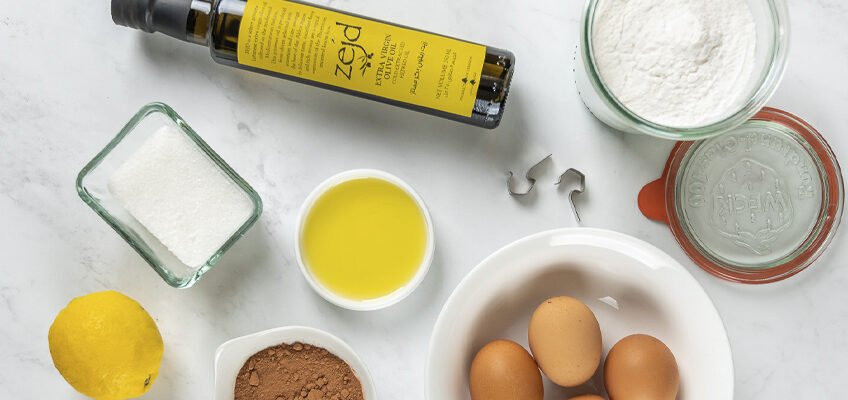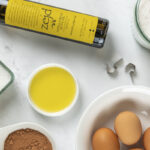Switching butter for extra virgin olive oil may sound farfetched; but it’s actually a compelling and sensible approach towards healthier diet, as well as an effective and viable culinary practice, endorsed by the many!
Benefits
Substituting butter with extra virgin olive oil can offer several benefits:
– Health Benefits: Extra virgin olive oil contains monounsaturated fats, known to reduce bad cholesterol levels and lower the risk of heart disease; as opposed to the saturated fats and cholesterol found in butter; which doubles the health benefits of the substitution.
– Antioxidant Boost: Extra virgin olive oil is rich in antioxidants like vitamin E and polyphenols, which help fight inflammation and protect cells from damage.
– Enhanced Flavor: Extra virgin olive oil can add a unique, rich flavor to dishes that butter may not provide.
– Improved Texture and Moisture: Extra virgin olive oil can keep baked goods moist and tender, providing a delightful texture. It works particularly well in dense cakes, muffins, and quick breads.
– Dietary Preferences: For those who are lactose intolerant, vegan, or have dairy allergies, extra virgin olive oil serves as a suitable alternative in recipes.
– Cooking Properties: Extra virgin olive oil’s versatility enables it to replace butter for a wide range of cooking methods, from frying and sautéing, to baking and grilling.
Culinary Applications
– Sautéing and Roasting: Extra virgin olive oil can be a perfect substitute for butter in medium-high heat cooking, adding a rich flavor to vegetables, meats, and poultry.
– Baking: Extra virgin olive oil can be a great substitute in recipes that call for melted butter, such as cakes, muffins, and breads, providing a moist texture and enhancing flavor.
– Stir-frying: Extra virgin olive oil can be an excellent substitute for melted butter in stir-frying, offering a healthier option without compromising on taste.
– Grilling: Use extra virgin olive oil instead of butter to brush on meats, vegetables, and fish before grilling for added moisture and taste.
Guidelines
– Baking: Use 3/4 the amount of extra virgin olive oil for the quantity of butter called for in the recipe; for example, use 3/4 cup of extra virgin olive oil for every 1 cup of butter.
– Cooking and Sautéing: Use a 1:1 ratio of extra virgin olive oil for the quantity of butter called for in the recipe; for example, use 2 tablespoons of extra virgin olive oil for 2 tablespoons of butter.
– Flavor Consideration: Choose a mild extra virgin olive oil to avoid overpowering the dish with a strong olive flavor, particularly for baked goods.
– Adjusting for Texture: For recipes that rely heavily on the structure provided by solid butter, such as pie crusts or cookies, consider using half olive oil and half a solid fat substitute (like coconut oil) to maintain the desired texture of baked goods.
Tips
– Experiment Gradually: Start by substituting half the butter with extra virgin olive oil in your favorite recipes. This allows you to get accustomed to the flavor and texture differences.
– Mixing Techniques: When substituting in baking, mix extra virgin olive oil with other liquid ingredients before combining with dry ingredients to ensure even distribution.
Make it a healthy cooking habit to use extra virgin olive oil in place of butter, to the extent possible; reserve the use of butter to those recipes that specifically require butter attributes to achieve the desired taste and texture.







Leave a Reply